Incredible Insights From 8 Nationally Recognized Coaches & Experts:
Parents and Coaches both want to know how to develop discipline, commitment and drive in their young athletes without making them quit or give up on a sport that can offer them many life lessons.
Recently we asked some of the top youth sports coaches & experts to answer the following question and I think you’ll find some very useful advice in the answers below:
-Do you have ONE TIP to help coaches and parents motivate athletes to commit to training consistently and with intensity…
WITHOUT “burning them out”?-
Below Are The Responses We Gathered From 9 Top Coaches & Experts, click a name to go directly to their response or scroll for full reading:
- Sam Weinman, author of Win at Losing
- Mike Kuchar, co-founder and Senior Research Manager of X and O Labs, featured on ESPN magazine, USA Today and CBSSports.com
- Dr. Jim Gels, founder of coachesclipboard.net
- Trevor McLean, founder of Basketball For Coaches website.
- Psychologist, Caroline Silby, Ph.D. Doctorate and Master Degree of Sports Psychology from the University of Virginia
- Terry Michler, High School Soccer Coach,Christian Brothers College High School – MO
- Joey Myers, founder of hittingperformancelab.com
- Gerald Lynch, Head Coach LDSA U10 Boys Soccer Team, Lower Dauphin – PA
- Eric Borba, Head Coach Orange Lutheran Baseball Team, Orange CA
“A Lot Hinges On Buy-In From The Athlete”
 “I’m glad you’re talking about burnout, because it’s a really important issue, especially as more athletes commit to a high level of competition at younger ages.
“I’m glad you’re talking about burnout, because it’s a really important issue, especially as more athletes commit to a high level of competition at younger ages.
“For starters, I believe a lot hinges on buy-in from the athlete. In other words, this all has to come from them, whether it’s because they love the sport, or because they’re determined to reach a certain level, or ideally a combination of the two. If an athlete is merely channeling the aspirations of a parent or a coach, then at some point that rationale is going to wear thin, so there needs to be a constant confirmation that the child is there because THEY want to be there.
“But even then I’m not convinced that’s enough, which is why I’m also a strong believer in parents and athletes practicing some restraint. We’re often conditioned to believe that going the extra mile is the only path to success, but with young athletes, that needs to be balanced with making sure they’re always engaged. So that means taking days off, or making workouts shorter but more efficient, and in some cases, taking the time to mix in other passions. Both my boys love ice hockey, but we’re pretty committed to taking most of the summer months off because I’d rather them stay away from the rink long enough to miss it and come back feeling energized when they do. There are all kinds of studies about how early specialization has adverse affects on an athlete’s long-term development, so you have to embrace the idea that missing some practice time is actually better for them in the long term. It’s all part of maintaining passion, which is ultimately far more important than getting in as many reps as you can.”
Sam Weinman, author of Win at Losing: How Our Biggest Setbacks Can Lead To Our Greatest Gains (available on Amazon.com)
For feature on a full interview on “Learning Through Loss” CLICK HERE.
“Specializing In One Sport Year Round Has Had Significant Ties To Burnout”
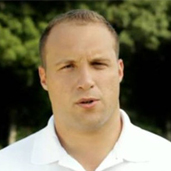 “Oh boy…I can write a book on this topic. In fact, we’re working on a research project that addresses this particular issue right now.
“Oh boy…I can write a book on this topic. In fact, we’re working on a research project that addresses this particular issue right now.
“If you’re asking me to speak personally, I would say that it has become necessary for the modern athlete to engage in multi-sports. It can be a solution to “burning out.” There are various amounts of skill sets that are developed/required when children learn to compete in different sports.
These days the paradigm has shifted to sports specialization, where young athletes are “committing” to one sport. In doing our research and speaking with medical professionals as well as collegiate coaches we are finding that specializing in one sport year round has had significant ties to burnout and muscle overuse. If we are talking about teenagers in particular, it is my belief that these athletes need to use different skill sets that are associated with that particular sport (hand strength in wrestling, step and turn coordination in baseball, foot speed/agility in basketball, etc.). Not to mention they learn to be coached by different personalities and work with a broader number of teammates. In fact, in talking to many college recruiters they have told us the second question (beside academics) they ask potential recruits’ coaches is “Does he play any other sports?” There are tie ins to the benefits of playing several sports at the youth level.”
Mike Kuchar, co-founder and Senior Research Manager, xandolabs.com
Mike Kuchar serves as co-founder and Senior Research Manager of X&O Labs. Kuchar has spent the last 15 years of his writing career researching and reporting on the newest trends and innovations in the game. His work has been featured in various national publications including ESPN Magazine, USA Today, and CBSports.com as well as coaching trade publications. Since starting X&O Labs, Kuchar has authored several special reports including the Zone Read Study, the Quarters Coverage Study and the 4-2-5 Defense Study. Aside from his journalistic pursuits, Kuchar has been a coach for 14 years, both at the high school and college level as a head coach and a defensive coordinator. Currently he is the assistant head coach and defensive coordinator at New Providence High School in New Jersey.
For feature on a full interview on “Sports Specialization and Culture Change” CLICK HERE.
“It Should Be A Different Approach For Parents And Coaches.”
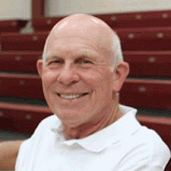 “It should be a different approach for parents and coaches. Parents should simply be supportive. Parents that push their kids in sports oftentimes take the fun out it and the child loses interest. For coaches, I think the best way to motivate is to show the player that you are really interested in him/her and want to help with some 1-on-1 individual teaching. When a young player experiences a coach that believes in him/her, it’s a powerful motivating factor.”
“It should be a different approach for parents and coaches. Parents should simply be supportive. Parents that push their kids in sports oftentimes take the fun out it and the child loses interest. For coaches, I think the best way to motivate is to show the player that you are really interested in him/her and want to help with some 1-on-1 individual teaching. When a young player experiences a coach that believes in him/her, it’s a powerful motivating factor.”
Dr. Jim Gels, founder of www.coachesclipboard.net
Coach Gels resides in Charlevoix, Michigan and is a physician, now retired, after actively practicing the speciality of Internal Medicine for many years. He grew up in St. Henry, Ohio and graduated from Miami University (1968) and the Ohio State University College of Medicine (1972), and did his residency in Internal Medicine at Beaumont Hospital (Royal Oak, Mi), finishing in 1975. He is a former Chief of Staff at Charlevoix Area Hospital, Charlevoix, Mi, and former director of both Intensive Care and the Non-Invasive Cardiac Lab. Dr. Gels is board-certified in Internal Medicine, and is a Fellow of the American College of Physicians. Coach Gels has been happily married since 1970 and has two grown children.
His basketball experience comes from playing the game every year from childhood until the age of 40 (amateur level). He then became involved in coaching basketball and has coached youth basketball and high school basketball for the last 30 years, both in the Charlevoix Youth Basketball Association and also the Charlevoix Northern Lakers (AAU) club.
“When Players Know They’re Improving, It Motivates Them To Work Even More.”
 “My #1 tip to get players training consistently is to provide them with workouts they can complete in their own time.
“My #1 tip to get players training consistently is to provide them with workouts they can complete in their own time.
“If you provide your players with effective workouts and the players execute them at game-speed, this will quickly make a noticeable difference to their game.
“And when players know they’re improving, it motivates them to work even more.”
Trevor McLean, founder of Basketball For Coaches.
He’s a passionate youth basketball coach, player, and overall lover of all things basketball. He’s had experience coaching on and off at the youth basketball level for the past 8 years. He started the blog a couple of years ago to give back to the game he loves and that helped shape him to become the person he is today. When he was growing up he was fortunate enough to have many coaches and teammates that had an incredibly positive impact on his life. He was taught first hand that basketball is a fantastic medium for players to learn life lessons and develop long-lasting relationships. He learned that the best coaches aren’t necessarily the ones that win the most games, but the coaches that impact the most lives. His mission is to have the same positive impact on the next generation of players that his coaches and teammates had on him.
“Athletes Have An Ambivalent Relationship With Their Sport – They Love It And Hate It.”
 “Typically, even high-level athletes get to a point in training when they start to “dial-it-in” rather than bringing their highest level of effort and intensity. After about 3 – 4 weeks of a training cycle, we often see athletes start to struggle with intensity and motivation. In fact, at the highest level of sports most athletes have an ambivalent relationship with their sport – they love it and hate it. Therefore, an interruption of the training cycle with some sort of competitive simulation, scrimmage, test sets or variation in training can be quite helpful in alleviating these motivational lulls.”
“Typically, even high-level athletes get to a point in training when they start to “dial-it-in” rather than bringing their highest level of effort and intensity. After about 3 – 4 weeks of a training cycle, we often see athletes start to struggle with intensity and motivation. In fact, at the highest level of sports most athletes have an ambivalent relationship with their sport – they love it and hate it. Therefore, an interruption of the training cycle with some sort of competitive simulation, scrimmage, test sets or variation in training can be quite helpful in alleviating these motivational lulls.”
Psychologist, Caroline Silby, Ph.D. Doctorate and Master Degree of Sports Psychology from the University of Virginia https://www.drsilby.com
Caroline Silby, Ph.D is a nationally recognized expert on the development of young female athletes, author of, Games Girls Play: Understanding and Guiding Young Female Athletes (St. Martin’s Press) and Adjunct Faculty member at American University. Dr. Silby has worked on an individual basis with two Olympic Gold Medalists, ten Olympians, three World Champions, eleven National Champions and over fifty National Competitors.
As an elite athlete, Dr. Silby was a member of the National Figure Skating Team. She later served on the U.S. Figure Skating Association Board of Directors and Athlete Advisory Council. Dr. Silby was appointed to the U.S. Olympic Committee Athlete Advisory Council, Collegiate Sports Council and Finance Committee. She teaches and consults at American University and the University of Delaware.
Currently Dr. Silby serves on the Board of the Kindness Counts Foundation, is an advisor to the Center for Sports Parenting, assists the Women’s Sports Foundation as a member of their Advisory Council, is a member of the American Ballet Theatre Advisory Board and is a consultant to the American Girl Company.
Dr. Silby is a sought after expert and has appeared on numerous television programs including Oprah Winfery, CNN, ABC-Wide World of Sports, and Oxygen Television. She resides in Maryland where she has an active national practice.
For feature on a full interview on “Confidence, Mental Toughness and Mindfulness” CLICK HERE.
“Speed Of Play And Speed Of Thought Become Essential”
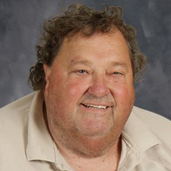 “Visualization – See yourself at your very best.
“Visualization – See yourself at your very best.
“What would that look like and what would it take to get there?
“Motivation is always best when internal – it must come from the player. At what level do you aspire to be – recreational, club, competitive. Academy, collegiate, or professional.
“The higher the soccer chain you go, the greater the competition. The importance of speed of play and speed of thought become essential in order to play at the higher levels.
“Proper training, with proper motivation, with the end-product always as the goal, is the formula for continued improvement.
“Goal setting is very important to help the player ‘stay the course’. Visualization and proper goal setting, with short and long term goals, will keep the player motivated to train with intensity.”
Terry Michler, Soccer Coach,Christian Brothers College High School – MO
Terry Michler is America’s winningest high school soccer coach in America with a lifetime mark of 896-209-99. Michler has led CBC to seven of its state record eight state championships. In 2015, he was honored by the Missouri State High School Activities Association with its Distinguished Service Award. He a member of the Missouri State High School Soccer Coaches Hall of Fame and the St. Louis Soccer Hall of Fame.
“Hard Work Beats Talent, When Talent Doesn’t Work Hard”
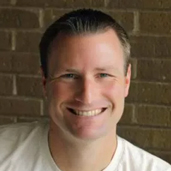 “Here’s my 2-cents on this…
“Here’s my 2-cents on this…
“I come from a self taught corrective fitness background of over 13 years, and played 4-years of Division-1 baseball at Fresno State. I have a number of acronym training certifications that I won’t bore y’all with.
“Here’s the truth…most people may be motivated to lose weight, but not inspired…UNLESS a Doctor puts a metaphorical gun to their head – ‘You have to eat right, OR ELSE’.
“Also, most people are not motivated to do their corrective exercises…UNLESS they’re in chronic pain or discomfort on a daily basis. Then they tend to stop when they feel better, which is a big mistake.
“So, what we do with both weight loss and corrective clients is set them up for success using the Minimum Effective Dosage method. Start walking on the treadmill for ONLY 5-mins per day. Be happy with that in the beginning. Start doing ONLY 5-mins of corrective exercises per day – and be happy with that. Over time these clients will increase the time as they start seeing or feeling progress.
“I use the same method with my athletes. I tell them to give me 4-5 days per week, 5-mins per day, to do their hitting homework we work on in our sessions. No minimum number of swings. I tell them or the parent to set a timer and when it rings, beeps, or sings then time is up and the athlete stops and moves on. Practicing their hitting homework during an organized practice with their team doesn’t count towards their 4-5 days per week because I find they aren’t deep practicing enough like they would on their own at home.
“I survey my players, and the ones who get at least 4 days in on their own at home, about 80% of the time, we’re moving onto the next thing in our next session. If they put in 3 days or less during the week, about 80% of the time, we’re revisiting what we just worked on the week before.
“And I tell them, it’s okay if they don’t get that many days in. And to understand the consequences of that to acquiring new skills. It may take years to master their swing. That means, more striking out, missing the ball, sitting the bench, batting at the bottom of the order, getting passed up by other teammates and competition, getting cut from teams, etc. If they get their work in, then more doubles, homers, parents screaming in the stands (because of good outcomes), coach’s high fives, teammate pats on the back, ink in the newspaper or online, etc. I tell them hard work beats talent, when talent doesn’t work hard.
“Set athletes up for success with the Minimum Effective Dosage model.“
Joey Myers, founder of hittingperformancelab.com
Joey Myers is the founder of the Hitting Performance Lab. He played 4 years of Division-1 baseball at Fresno State from 2000-2003. He’s a member of the American Baseball Coaches Association (ABCA), the International Youth and Conditioning Association (IYCA), and the Society for American Baseball Research (SABR). I’m also partnered with the Positive Coaching Alliance (PCA).
I’m a certified Youth Fitness Specialist (YFS) through the International Youth Conditioning Association (IYCA), Corrective Exercise Specialist (CES) through the National Academy of Sports Medicine (NASM), and Vinyasa yoga instructor…AND, I’m also certified in the Functional Muscle Screen (FMS).
I’ve spent 11+ years in the corrective fitness field, and have a passionate curiosity to help other players – just like yours – dramatically improve performance through the science of human movement.
For feature on a full interview on “Positive Reinforcement And Communication” CLICK HERE.
“The One Thing I Try To Do, Is Keep The Players ENGAGED”
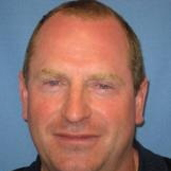 “This is one of the biggest challenges for any coach but especially in the High School as we are either practicing or playing every day.
“This is one of the biggest challenges for any coach but especially in the High School as we are either practicing or playing every day.
“The one thing that I try and do to keep the players engaged is to try and not do the same drills all the time. If I vary the practice sessions I find that they are more motivated and don’t lose interest as quick as doing repetitive drills.”
Gerald Lynch, Head coach of the Lower Dauphin Boys High School Team, Hummelstown PA.
Coach Lynch played soccer growing up in Ireland. He was the LDHS Boys Assistant Coach for 10 years and Head Varsity coach since 2001. He was also the Assistant Coach for LDHS Girl’s from 1995 to 2004 and coached two City Islanders Super Y teams in 2006 and 2007. Currently theHead coach of the Lower Dauphin Boys High School Team, Hummelstown PA. His team was the 2016 State Champions with a record of 28-0-0. Coach Lynch holds a NSCAA Advanced Regional Diploma coaching license.
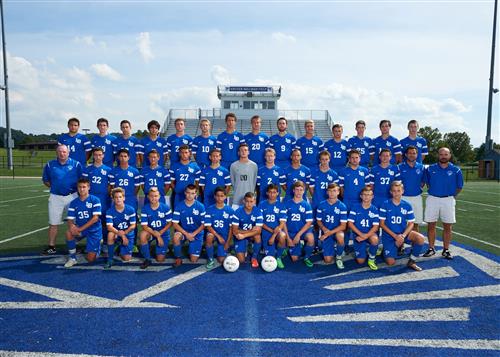
“Two of the most important questions for our kids are what did you love and what did you learn?”

“In my opinion, avoiding burnout and creating consistent, intensive training plans should be at different stages for most young athletes. We can not train a six year old to train the way a sixteen year old trains. Each young person involved with sports will have a different level of God given ability which will ultimately determine the levels of competition they may reach. Because it is very hard to determine athletic abilities at a very young age, the training/development aspect must adapt with the individual’s growth to keep these young boys and girls engaged.
Creating highly competitive, intense workouts will lead to burnout if they are not successful at a young age. Kids grow and develop at different rates. Some are bigger, some are stringer, and some are faster. Frequently, these kids get “caught up” by their peers later in the development process. In this generation, everyone is focused on their “image.” If they are not successful, they tend to shy away from that event because of their fear of failure and how others may look at them.
Through the early years of development, the main objective should be to make sport enjoyable. Kids enjoy what they are doing when they are successful doing it. Therefore, it is critical to find ways for each person to be successful. If we can take some from the result and add to the process, we will be much more successful in keeping young people engaged. Find ways to make the process fun…do games at practices, play music, let them enjoy their time with teammates, and create rewards for fun competitions in training. Coaches need to look at each player differently and set goals that are attainable for each individual. I taught high school algebra for 15 years. I found that there are students who were not going to comprehend the material, no matter how it was presented to them. I tried to reward those students for their efforts, rather that their test results. We can do the same in sport. When our youth enjoys what they are doing, they will go the extra mile to be successful, which takes us to the competitive intense workouts.
Each young person will be ready for intensive workouts at a different time. As coaches, we need to adjust schedules and plans accordingly. Some will be ready for more advanced training at younger ages, but try to match the two. Don’t ask players to try to do more than they are capable of doing at a young age. When they are ready for the challenge, we need to constantly raise the bar and challenge them more and more. When that time comes, we can then create intense workouts that they will naturally become ultra-competitive with. They will see what their abilities are and want to maximize those abilities.
In closing, I would say to the coaches – try not to focus on the bottom line as much as the process to ultimately reach goals. Focus less on “winning and losing” and more on what went right when you won and what went wrong when you lost. Focus on learning and developing! Make each day you are with your team a positive environment, where they can mature.
To the parents – please talk to your kids about enjoyment and growth. The results they have as young athletes do not necessarily translate to the same results later in development. When your son or daughter is not successful in sport, talk about why they may not have been successful. When they are successful, don’t just tell them how great they were. Two of the most important questions for our kids are what did you love and what did you learn? Turn your post-game conversations with your children into talks about effort and attitude. Those habits will translate!”
Eric Borba has completed 9 seasons as the head coach of the baseball team at Orange Lutheran High School in California. At times during 6 of his 9 seasons his team has been ranked in the top 25 nationally and #1 at times during 2010, 2012, and 2016. He has also had 6 of his players selected in the MLB draft and 36 of his athletes have signed or committed to division 1 programs.
If you have any insights or comments on this topic or about any of the responses we would love to hear them in the comments below.
